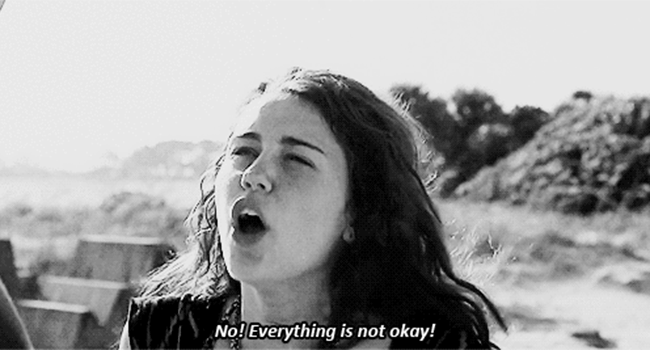
December 3, 2018, by Carla
Rejected After an Interview? How to Recover in Seven Steps
By Abigail Rowse, Employability Officer
Have you been rejected recently after an interview for a job, placement, course or another opportunity? I know first-hand how disappointing and dejecting it can be.
Read on for tips on how to move on in a positive and productive way.
1. It’s okay not to be okay
Before you do anything else, it’s okay to take some time just to recover. It can be really difficult to be told no to an opportunity you thought was perfect for you, so make sure you look after yourself.
Talk to friends, catch up on your favourite Netflix series or do something fun as a distraction. It’s better to use your time taking care of your wellbeing than wallowing in despair.
2. You’re not alone
A few years after I graduated, I applied for a job that I really, really wanted. I thought that I aced the interview and the on-the-spot presentation, and I felt far more positive than I usually do after interviews.
Needless to say, I didn’t get it. I was really upset and ended up crying in a Moroccan restaurant. The staff felt so sorry for me that they gave me a free dessert – so at least that was one positive!
It’s not just me either, the web has reams of stories about famous people who were rejected before they found success.
Walt Disney was told he “lacked imagination” and Oprah Winfrey was once fired for being too emotional. Know that you’re not alone and like many before you, you will move past this and find something right for you.
3. It’s not you – really!
When you don’t get a job or another opportunity, it’s easy to fall into the trap of thinking you aren’t good enough.
If you know deep down, you didn’t try your best – for example, you didn’t prepare for your interview at all – then maybe take this as a learning opportunity.
However, if you tried your best and felt prepared, then remember that there are factors at play beyond you. For example, there might have been a really strong internal candidate who knows the business inside out or someone who’s already doing the role elsewhere who’s relocating.
Whatever the reason, it’s not useful to waste time blaming yourself.
4. Bite the bullet and ask for feedback
Requesting feedback can be daunting, but I strongly recommend it.
You’re more likely to succeed in the future if you actually know what you need to improve. Email HR or someone from the interview panel to request feedback on how you did. They may not always be able to provide this – especially if the organisation has interviewed a lot of people – but it’s worth asking.
You may be pleasantly surprised; sometimes the feedback contains positive comments too.
For example, that job that left me crying over my vegetable tagine? I found out afterwards that I had been their second choice and the role had gone to someone already working in the department with lots of experience.
Of course, it’s likely you’ll receive some constructive feedback too. That’s okay – remember all those successful people who’ve been where you are – just politely thank them for their time and take their ideas on board.
5. Reflection: not just for mirrors
Before you rush out to apply for more jobs, take stock.
Use the feedback from the employer as well as self-reflection to take some notes. Ask yourself questions: what did I do well that I should definitely do again? What could I improve on, and how will I work on these areas? Is this definitely the right role/course/area for me or should I go back to the drawing board?
I recommend writing down everything that comes up in your self-reflection. Your focus and memory are at their best right now, and it might be a while until your next interview, so you want something useful to refer back to.
Next, consider what you can do to feel better prepared for next time. And remember that your Careers team are here for you.
Our website has a wealth of resources from interview techniques to how to gain more work experience and ideas on where your specific degree could take you.
6. Tailor your approach
Moving forward, it’s important that you start afresh with each application.
Would you rather receive a blank birthday card, or something with a thoughtful message just for you inside? Applications and interviews are similar; it’s far more effective to tailor each one to the specific role, course and/or organisation than blindly sending out the same application to every employer.
Remember to match your skills and experience to the role profile or the course/person specification. If you need help polishing your CV, finessing your application or personal statement, or improving your interview skills with a mock interview, book a one-to-one appointment or attend a relevant skills workshop when you’re ready.
7. Just keep swimming
The job I told you about earlier, where I sobbed myself to a free dessert? I ended up getting a similar role in the same department a few months later, after following my own advice.
While this exact scenario might not happen to you, I know that you’ve got this.
Like Dory before you, keep moving forward and remain positive. You were a strong candidate to get an interview and you will be again. With the right feedback, reflection, and preparation, you will go into your next interview confidently.
Have you recently been rejected after an interview? We can help you. Find out how to book a one-to-one here or get some more general advice about interviews on our website.

Abi, this is great advice – and very entertaining too! ‘Just keep swimming’ is exactly the attitude that’s required, and although that can be a hard thing to do, your suggestions are really helpful.